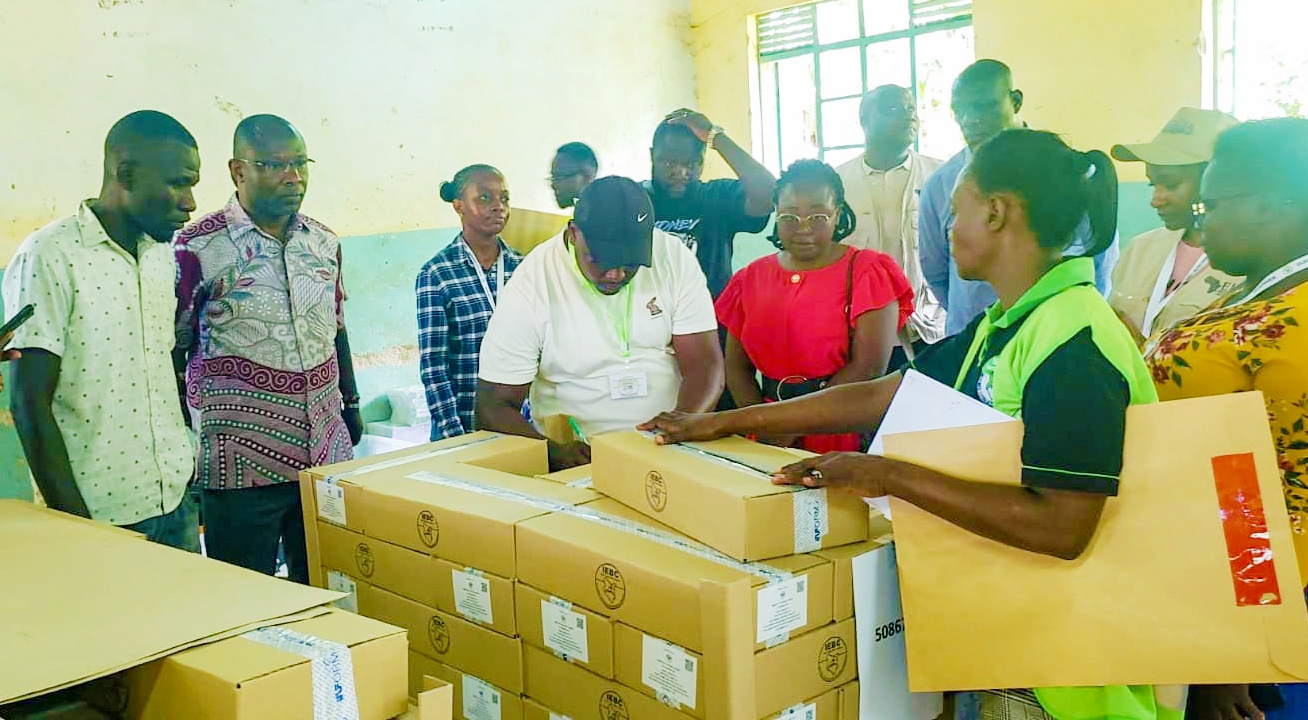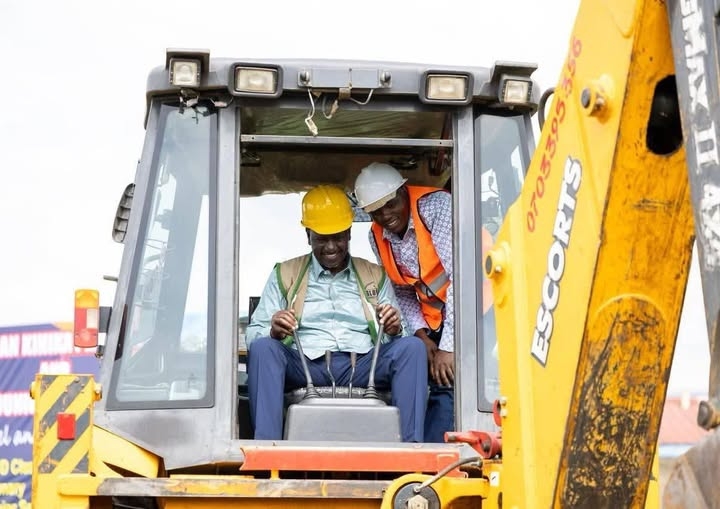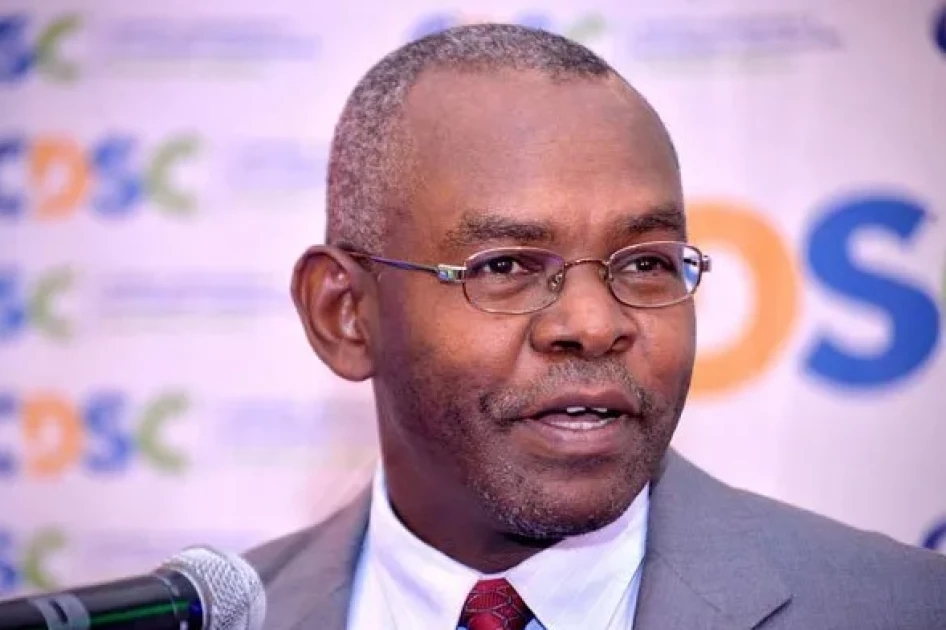Uyombo residents in Matsangoni, Kilifi county, have received a major boost in their opposition to planned nuclear power plant.
This is after environmental experts from four countries with experience with nuclear power reactors pledged to support their cause.
The experts are from Russia, Switzerland, Sweden and South Africa.
Center for Justice, Governance and Environmental Action, which has been working with the residents to oppose the project, said the experts will conduct their own Environmental Impact Assessment using Artificial Intelligence.
“For long, Nupea (Nuclear Power and Energy Agency) has been saying we don’t have expertise and all other things, to oppose their project. Now we have received reinforcement and backing from experts. Moving forward, we will be talking from a point of knowledge,” executive director Phyllis Omido said.
The experts will review the Strategic Environmental and Social Assessment report, with the help of another team from Germany.
“We want to use these reports to stand with Uyombo residents who have rejected this project. We asked Nupea to do a feasibility and EIA study but they are dragging their feet. So we will now do it with our partners and friends," Omido said.
The EIA will be conducted in Arabuko Sokoke forest and the Watamu Marine Park.
These are tourist attraction sites that will be negatively affected by the nuclear power plant set to be built in Matsangoni.
Kilifi Woman Representative Getrude Mbeyu, said Uyombo residents cannot be forced to consume poison.
She is the only politician who has so far opposed the project.
“We don’t want this nuclear plant in Uyombo or anywhere in Kilifi county. We have read about nuclear power plants and now know the truth they are keeping from us," Mbeyu said.
The government set aside Sh2 billion for the project.
She said its negative impacts such as production of radioactive waste that can remain dangerous for thousands of years were not properly explained to the residents.
“They have not conducted proper public participation for the community to understand this project. We want a coconut factory to harness the full potential of the coconut trees in place of the plant. Coconuts have more than 100 benefits,” Mbey said.
Russian environmental group, Eco Defence, co-chair Vladimir Slivyak said nuclear power is expensive, makes people poor, and puts countries in debt.
“It’s very dangerous. Reactors are blowing up and reactors release radiations that kill people and ecosystems,” he said.
Slivyak said some governments doctor EIA reports to serve their interests against the communities'.
“My advice for the Kenyan government and people of Uyombo is very simple. Don’t go for nuclear energy. It’s going to bring a lot of harm. Go for renewable energy just like the rest of the developed countries,” he said.
Makoma Lekalakala, Earthlife Africa director, asked the government not to sacrifice Kilifi's rich biodiversity for harmful projects.
"The Kenyan government is seen as a leader in measures to mitigate the effects of climate change. Why would they want to destroy the environment safeguarded by people for decades? she asked.
"If the nuclear plant is built, the legacy of Wangari Mathai will be thrown into the dustbin.”
Lekalakala said whatever decision is made, Uyombo residents must be part of it.
Community chairman Anthony Kingi said they are opposed to the project because a proper public participation was not conducted.
“We asked for names of people who conducted the public participation but they refused because they know what they did,” he said.
Kingi said the strong opposition is to preserve the rich ecosystem that provides livelihoods for the residents.
"This is where we get our daily bread. Tourists pay us to enjoy the different flora and fauna at the Arabuko Sokoke forest and the Watamu Marine Park," he said.
The Marine Park has dolphins, turtles and species of fish.
“Nupea cannot put poison in a very sensitive ecosystem, which has a lot of biodiversity,” he said.
The Southern African Faith Communities Environment Institute executive director Francesca de Gasparis said the Uyombo case coonucerns them.
“Our experience with nuclear energy in South Africa is that it’s often done in secret, deals are made behind closed doors, money is exchanged, making it a big vehicle for corruption,” she said.
Kenya has a strong constitution that talks strongly about public participation and other necessary processes.
“It doesn’t look like that is happening in Kilifi,” de Gasparis said.
She said nuclear waste stays for hundreds of years and is costly to store.
“Even a tiny amount can destroy your tourism industry, which the whole coastline is dependent on. There is an abundance of natural beauty and talent here in Kilifi. The future is renewable energy,” de Gasparis said.
Right Livelihood director for Geneva Office Alessandra Canova said they will stand with Uyombo residents.
Right Livelihood awarded Omido 2023 for her conservation work.
“We have heard about what happened here two months ago and how difficult it is for the community to defend its rights,” she said.
She was referring to the May 21 protests where police violently repulsed protestors with tear gas for demonstrating against a contractor who was installing a weather station at Uyombo Girls secondary school.
She said almost all countries that had nuclear power plants in Europe are dismantling them because they are not safe and are expensive to maintain.

















